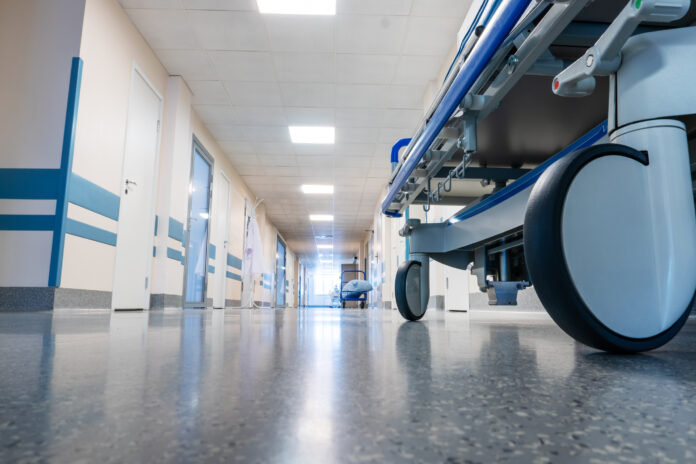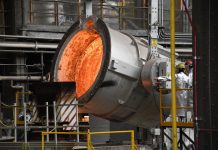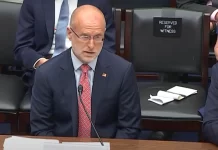By Victor Davis Hanson
In all the gloom and doom, and media-driven nihilism, there is actually an array of good news. As many predicted, as testing spreads, and we get a better idea of the actual number and nature of cases, the death rate from coronavirus slowly but also seems to steadily decline.
Early estimates from the World Health Organization and the modeling of pessimists of a constant 4 percent death rate for those infected with the virus are for now proving exaggerated for the United States. More likely, as testing spreads, our fatality rates could descend to near 1 percent.
There is some evidence from Germany and to a lesser extent South Korea, that it may be possible to see the fatality rate dip below 1 percent. And with the breathing space from the lockdown, better hygiene (the degree of constant and near-obsessive cleaning at businesses that are still open is quite amazing), more knowledge and data, better medical protocols, the use of some efficacious drugs, warmer weather, and experience with the disease will, in perfect-storm fashion, begin to mitigate the effects of the virus.
Should we get the lethality rate down to German levels (currently two to three in 1,000), then we can cautiously assume that those who predicted that the coronavirus could eventually be contextualized as a bad, H1N1-like flu will no longer be demonized as nuts, and life can resume with reasonable precautions and focused quarantines and isolation.
In two or three weeks, if we can just allow most businesses to reopen, gear up to pandemic testing, track cases and contacts in the manner of past protocols that lessened polio, tuberculosis, AIDS, and measles outbreaks, and focus on the ill and elderly, then the economy will reboot.
But now the current economy is starting to resemble a patient in an induced coma, one whom no one knows whether he will recover after the respirator is disconnected. But still, there are reasons for optimism: historically low interest rates will eventually encourage bit-ticket buying.
After any war or national crisis, confidence soars with collective relief and people go out to eat, travel, buy, and consume. Airlines, and the entire commercial and private transportation sector, will receive a multi-billion-dollar subsidy in radically reduced gas and diesel prices. The same holds true for the utilities.
Summer is approaching. With it comes increased driving and travel at lower prices, at the exact time there is some good reason to believe warmer weather could curb viral transmissions—just as we are learning of an increased effort to defeat the coronavirus with experimental medicines, homogenized protocols, more plentiful medical supplies, and better data.
A Dry California?
We forget the world goes on amidst the viral panic, and the news apart from the outbreak is actually pretty good. California, the country’s largest state and biggest economy, was facing a harsh drought just three weeks ago. There were near record dry months in January and February, when essentially no rain or snow fell, and the bounty of the prior December was melted or sent out to sea. There was not much hope, since the great preponderance of California’s precipitation falls before March 1.
However, a rare “March Miracle” has just seen the Sierra Nevada Mountains suddenly receive 4-6 feet of snow that covers dry ground (it is still snowing as I write this). And the later the snow, the better the spring runoff.
While 2020 will not prove an especially wet year, the state—and by extension, the country— has dodged a lethal bullet. Had California in the midst of the epidemic, whose spread is predicated on unhygienic behavior, been struggling also with drought-induced water rationing—less bathing, hand-washing, cleaning—the negative synergy could have been devastating.
Certainly, the public gloom would become endemic at being simultaneously ordered to practice nonstop washing and cleaning, while also being ordered to save water amidst a panic of hand cleanser and antiseptics hoarding and shortages.
Our Rivals
In geostrategic terms, we do not endure an absolute but rather a relative epidemic. Like it or not, national rivalries continue at a time of plague. Our three greatest rivals, China, Russia, and Iran are all faring far worse than are we in ways that transcend the virus.
China’s brand is tarnished, despite its cheap and loud effort to Silkroad its way out of the disaster. Sending medical supplies to Italy does not balance out earlier sending hundreds of Chinese citizens with the virus to Italy, at a time the communist government knew the disease was transmissible, and well established among the Chinese population. It kept such knowledge from the world in general, and from its clients like Italy in particular.
Nations, if wise, will question Chinese reliability, transparency, and truthfulness as never before—despite likely Chinese discounts and outreach to maintain relationships. Many will still conclude that the upside of cheap labor cancels out the downside of dependency on such an unreliable and odious government partner.
In American terms, Trump’s supposedly quixotic effort to decouple key industries from China will no longer be the stuff of bemused scorn, but the new orthodoxy, with obvious advantages for the United States in terms of autonomy and autarky of life-sustaining goods—not to mention U.S. jobs.
Iran was in extremis before the virus—oil price crashes, oil sales boycotted and embargoed, unpopularity over killing 1,500 protestors and lying about shooting down a passenger airliner. Now its “China First” policy of relying on Beijing for help in avoiding U.S. sanctions boomeranged in catastrophic fashion: their atheistic and Islamic-persecuting Chinese patrons knowingly sent infectious people into Iran, with the full knowledge of the risk to their supposed client.
Russia’s Middle East agendas were already stagnating, given that Syria is an expensive hellhole that great powers are now wise to avoid, at least on the ground. Crashed oil prices robbed Moscow of revenue. Its military buildup, Middle East imperialism, and anti-American efforts are running short of cash. They will continue to do so as both Saudi Arabia and the United States pump more oil.
There is a golden opportunity for U.S. corporations to return to America and to become what has been called the new Roosevelt “arsenal of democracy,” the world’s supplier of medical supplies and pharmaceuticals that nations count on in times of crisis.
The Media
Everyone knew before just how biased and unprofessional the media had become in its maniacal hatred of Donald Trump. But few appreciated how uneducated, arrogant, and clueless about simple calculations and logic was this generation of reporters that has emerged from politicized schools of journalism, which taught therapy rather than knowledge, much less a code of conduct.
The media daily blares out preliminary models and data, without even the most remedial context. They parrot the supposedly historic death rate of the virus, without any knowledge that the denominator of virus cases is as inaccurate and misleading as the numerator of deaths is mostly factual.
Then they seemed surprised that the death rate dips as tests and supposed cases spread, without any appreciation that known cases are likely not representative of the populace as a whole, but represent only those who were tested (80-90 percent negative), and thus only of those who felt ill or were exposed enough to be tested. Few tell us that a small percentage of those tested, when ill, have COVID-19, or the death rate is warped by those over 70 with accompanying heart, respirator, and cancer challenges.
When journalists talk of “20,000 cases!” they never remind their readers that nearly 99 percent recover from the virus that has stealthily been with us likely since mid-January, and of those 20,000 or so cases, a large number of the sick are already well. There is now a parlor game on the Internet of cutting and pasting clips from cable news, PBS, and NPR to reveal how inane and unthinking reporters have become.
Not so long ago, it was “bombshells,” “turning points,” “game-changers,” and “walls are closing in” to assure us that Robert Mueller was about to indict the entire Trump team. And now “we will never be the same,” “worse than the 1918 flu,” “xenophobia,” etc. have become the new parroting. Only an ignoramus or worse, would employ the terms “Chinese virus” and “Wuhan flu” for most of January and February, and then suddenly declare such terms racist when Donald Trump or his supporters copied such common media parlance.
Whereas no one believed the media in the past, no one especially likes them now, either. The more they in Pavlovian fashion equate coronavirus with the Spanish flu epidemic of 1918, and Trump with Hitler, the more people, to the degree they hear of such silliness, tune them out.
Relative Value?
I think one of the strangest of all sequelae to the virus and the lockdowns might be the millions of high-paid Americans whose absences were hardly missed either by the public or count much in subsequent economic analyses of damage to the economy.
In a sophisticated society under lockdown, is it more existentially valuable to know how to fix a toilet, replace a circuit breaker, or change a tire, or to be a New York fashion designer, a Hollywood actor, or a corporate merger lawyer? At 9 p.m., when you go downtown in need of a critical prescription, are you really all that furious that a law-abiding citizen who has a gun and concealed permit is also in line—or would you be more relieved that gun control laws might ensure that his ilk never enters an all-night pharmacy?
So who is important and who not?
We were often told globalized elites on the coast were the deserved 21st-century winners, while the suckers and rubes in-between had better learn coding or head to the fracking fields.
But who now is more important than the trucker who drives 12-hours straight to deliver toilet paper to Costco? Or the mid-level manager of Target who calibrates supply and demand and is on the phone all day juggling deliveries before his store opens? Or the checker at the local supermarket who knows that the hundreds of customers inches away from her pose risks of infection, and yet she ensures that people walk out with food in their carts? The farmworker who is on the tractor all night to ensure that millions of carrots and lettuce don’t rot? The muddy frackers in West Texas who make it possible that natural gas reaches the home of the quarantined broker in Houston? The ER nurse on her fifth coronavirus of the day who matter-of-factly saves lives?
Do we really need to ask such questions of whether the presence of the czar for diversity and inclusion at Yale is missed as much as the often-caricatured cop on patrol at 2 a.m. in New Haven?
Do social justice student protestors who surround and heckle the politically suspicious now in ones and twos also scream in the faces of the incorrect plumber who unclogs their locked-down apartment drain?
The virus has reminded us again, but in an unorthodox fashion, that the world is bifurcated by the degreed versus the non-college educated, rural versus urban, sophisticates in opposition to supposed rubes—and the dichotomy has been telling. I don’t suppose Rick Wilson will go on CNN again to do his fake-Okie accent to ridicule the supposed unwashed, who deliver his food and energy, as viewers might wonder what exactly was his expertise.
Will multibillionaire Mike Bloomberg really convince anyone that a farmer operates by simplistic rote, and someone like himself is critical to America—one who censored the politically incorrect reporting of his own journalists while he schemed to find ways to capitalize Chinese Communist-owned companies with western currencies—at huge multi-billion-dollar profits to himself?
When your refrigerator goes out under quarantine and your supplies begin to rot, do you really need another rant from Rep. Maxine Waters (D-Calif.)—or do you rather need a St. Michael Smith and St. Uriel Mendoza to appear out of nowhere as the archangels from Home Depot to wheel up and connect a new one?
Originally published by American Greatness. Republished with permission.










